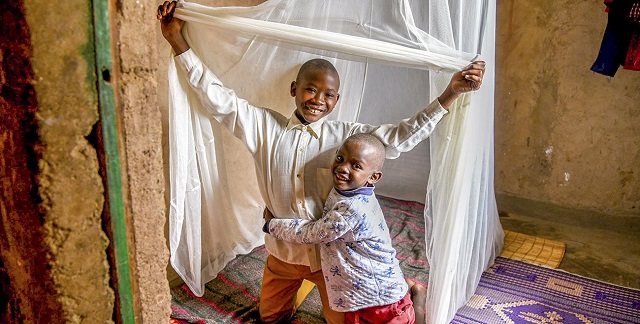
The Draw the Line Against Malaria campaign builds on the pan-African Zero Malaria Starts with Me movement
COMMENT | DR ABDOURAHMANE DIALLO | In recent decades, the world has made remarkable progress in the fight against malaria. Over 20 years of investment, commitment, and action have saved over 7.6 million lives and prevented over 1.5 billion malaria cases. We’ve discovered new ways of protecting ourselves from the deadly mosquito bite – with insecticide-treated mosquito nets, effective antimalarial treatments, and—most recently—promising new innovations such as gene drive and malaria vaccines bringing us one step closer to our goal of malaria eradication.
And we’ve also seen that malaria elimination is a viable and worthy goal for countries around the world – no matter their size or geography. Since 2000, 24 countries have ended malaria, including Algeria, Paraguay, and Sri Lanka. In fact more countries than ever before are today on the cusp of elimination.
To mark this year’s World Malaria Day on 25 April, the World Health Organization (WHO) announced its new E2025 initiative – a set of 25 countries within reach of zero malaria by 2025. Encouragingly, several African nations, including Botswana and Eswatini, are part of the next cohort, while Cabo Verde has registered zero indigenous malaria cases for three consecutive years, putting it on track for WHO malaria-free certification.
Despite Africa suffering 90% of the world’s malaria burden, this shows that our continent can beat malaria and unlock the incredible societal and economic benefits associated with elimination.
However, for all of Africa to enjoy these benefits, we can—and must—do more. Advances in technology have made malaria both preventable and treatable, yet over 400,000 people died from the disease in 2019, two-thirds of them children under the age of five. To end this needless suffering, it is critical that we drive high-level commitments, close the US$2.6 billion annual malaria funding gap, and invest in research and development to discover new ways to defeat this disease.
However, the road to elimination won’t be easy – as shown by the unprecedented events of 2020. Last year, fragile health systems across Africa faced the dual burden of preventing both malaria and coronavirus cases. However, despite the challenges of country lockdowns and supply chain disruptions, 90% of planned malaria prevention campaigns were delivered across the world with necessary COVID-19 precautions—averting the worst-case scenario projected by WHO of malaria deaths doubling in 2020 alone.
Whilst the continent continues to battle COVID-19, we must do more to protect everyone at risk of malaria, as well as the tremendous strides made in fighting this disease. Worryingly, malaria diagnosis fell by 31% in 2020 due to COVID-related disruptions, according to the latest report from the Global Fund to Fight AIDS, Tuberculosis, and Malaria. We must ensure that Africans—especially children and pregnant women—continue to seek prompt diagnosis and treatment for malaria, which can literally be a matter of life and death.
The good news is that we have the commitment and resolve to end suffering from this disease, and today’s youth are the generation that can play a key role in making it happen. New research from the RBM Partnership to End Malaria recently found that 9 in 10 African youth want to take personal action in the fight against this disease, and despite COVID-19 diverting attention away from malaria, 61% also believe the disease can be eliminated in their lifetimes.
The Draw the Line Against Malaria campaign builds on the pan-African Zero Malaria Starts with Me movement to inspire young people to call on their leaders and push for political action to end malaria. We must empower the next generation to be agents of change within their communities for ending malaria by choosing medical and scientific careers; leading their communities and businesses to be malaria-smart and holding leaders accountable for stepped-up action to end malaria.
As long as malaria exists, it will continue as a chronic engine of poverty and inequality, burdening the poorest and most vulnerable communities, and potentially resurging in times of crisis. On Africa Day, I called on everyone to recommit to the goal of zero malaria—as a continent, we have so much to gain from reaching it.
Ridding Africa of this disease will lead to healthier, more resilient communities that are better able to thrive and prosper, helping us realise the vision of the Africa we want.
****
Dr Abdourahmane Diallo is CEO of the RBM Partnership to End Malaria
 The Independent Uganda: You get the Truth we Pay the Price
The Independent Uganda: You get the Truth we Pay the Price





